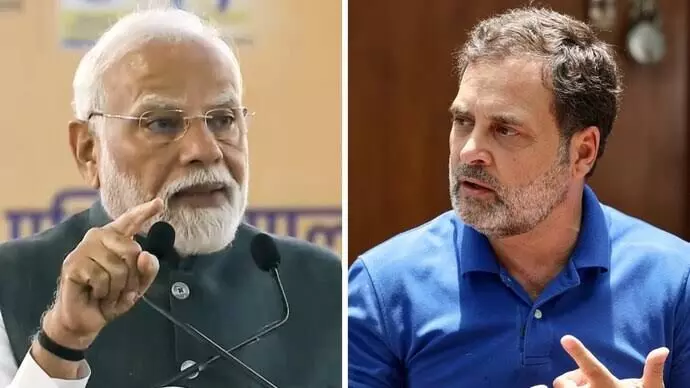Restoring the Voice of Jammu & Kashmir

Symbolism meets silence in Uttarakhand’s Harela festival, exposing a deepening ecological crisis beneath poetic rituals, court indictments, and unfulfilled promises of environmental stewardship. Greenwashed gestures replace genuine reform.
In a bold escalation of its parliamentary strategy, the Congress party has formally demanded legislation to restore full statehood to the Union Territory of Jammu and Kashmir, alongside constitutional safeguards for Ladakh. The joint letter, signed by party president Mallikarjun Kharge and Leader of Opposition Rahul Gandhi, and addressed directly to Prime Minister Narendra Modi, goes beyond symbolism—it calls for tangible political reversal backed by precedent, people’s will, and Supreme Court obligations.
The appeal is urgent and layered. It acknowledges the democratic void left in the wake of the August 5, 2019 decision, when J&K’s special status under Article 370 was abrogated, and the region was split into two Union Territories. This marked the first instance in independent India where a full-fledged state was downgraded, an anomaly that continues to evoke constitutional discomfort. The Congress letter calls this “without precedent,” underscoring the gravity of the act not just legally, but politically and emotionally for the region’s people.
Five years since that watershed moment, the promise of restoration has remained suspended in political ambiguity. The people of Jammu and Kashmir have consistently voiced their demand for full statehood—not as an electoral slogan, but as a restoration of dignity and democratic agency.
Even Prime Minister Modi, in multiple public statements, has acknowledged this demand. In Bhubaneswar, May 2024, he declared, “The restoration of statehood is a solemn promise we have made and we stand by it.” He repeated that assurance again in Srinagar, in September of the same year: “We have said in Parliament that we will restore the region’s statehood.” These promises were also echoed before the Hon’ble Supreme Court during the Article 370 hearings, where the Union Government submitted that the region’s status would be reinstated “at the earliest.”
But promises, no matter how solemn, need legislative expression. And that’s where the upcoming Monsoon Session assumes central importance. Congress has asked not just for a reaffirmation, but a tangible bill—an instrument that moves the restoration process from rhetoric to resolution. It demands that Parliament recognize the constitutional breach and correct it within the chamber that caused it.
Parallel to the J&K statehood demand, the Congress has raised another critical issue: the inclusion of Ladakh under the Sixth Schedule of the Constitution. This isn’t just a demand—it’s a desperate need, driven by the socio-cultural and ecological fragility of the region. Ladakh’s indigenous communities have repeatedly flagged threats to their land rights, employment access, and cultural heritage. The Sixth Schedule, which provides autonomous governance frameworks for tribal areas, could be a lifeline.
Congress rightly argues that this legislative move would safeguard Ladakh’s identity and empower its people.
What lends this dual demand urgency is not just political timing—but administrative testimony. Government-appointed bodies, including local councils and civil society networks in Ladakh, have flagged marginalization in governance. Movements like the Kargil Democratic Alliance and Leh Apex Body have long advocated constitutional guarantees, warning that unchecked centralization threatens Ladakh’s unique ethnic, religious and ecological balance.
Meanwhile, in Jammu and Kashmir, the absence of full statehood has left elected local leadership unable to steer policies independently. A powerful Lieutenant Governor’s office exercises most executive authority, reducing the democratic mandate to symbolism. The people of J&K have endured prolonged silence in the corridors of power—silence that is now being called out.
Congress’s intervention isn’t just a restoration pitch—it’s also an accountability measure. If the government can bifurcate, downgrade, and legislate at midnight, it must also legislate in daylight when restoration is due. The Monsoon Session could be a historical reckoning—or another missed opportunity.
In raising these demands, Congress not only challenges the BJP’s governance optics but also reclaims space for constitutional morality. It sets the tone for national parties to move beyond tokenism in federal discourse, to confront the implications of centralization and to honor voices that have been sidelined. Because ultimately, the question isn't about administrative convenience—it’s about democratic conscience.
The restoration of statehood and constitutional protection for Ladakh aren't just policy demands—they’re tests of whether Indian democracy remembers those it disrupts. And this time, it’s Parliament’s turn to answer.
